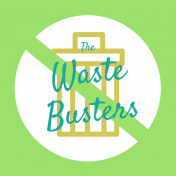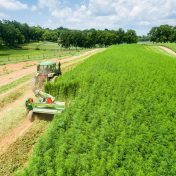Over the course of our Action Project, I learned many new skills and had experiences that enriched my learning and outlook on the topic of food insecurity. Each group member was tasked with contacting local restaurants and grocery stores to inquire about excess food that could be donated to local shelters that would otherwise be thrown out. In retrospect, I… Read more »
This project was one of my first experiences planning an event for a large group of people. I learned just how many moving parts needed to be organized in order for everything to go according to plan. Unfortunately, after all of our planning we had to cancel the event because our venue pulled out. The big lesson we learned was… Read more »
For our Group Action Project, we wanted to host a public screening of the documentary Queen of the Sun: What are the Bees Telling Us? on the HUB lawn one evening so that people could become well informed on the issues surrounding Honey Bees while also enjoying a nice evening outside! We had partnered with the University of Washington’s Beekeeping… Read more »
(see https://www.washingtonpost.com/news/wonk/wp/2016/05/19/the-apple-industrys-strange-savior/ for image cred) For our project, we chose the topic of food waste, and in particular apples in the Seattle area. We made a children’s game inspired by Candyland that showed the (linear) path an apple makes as it is grown, shipped, stocked, and eventually eaten by consumers. We called it “Wasteland.” It is mostly geared toward waste on… Read more »
This action project was a learning experience for me and for my group. We began with the intention of affecting direct policy change through legislation aimed at legalizing hemp nationwide, but soon had to redirect our efforts after our first avenue ended up being impractical during the time period we were allocated. We chose hemp legalization as our issue of… Read more »
Contemplative practices, as trivial as they may seem to others, have the power to inform in an interactive manner as well as generate thoughts about one’s role within regard to the rest of the food system. I personally have found our contemplative practices thus far to be very engaging and necessary. With an act as simple as being told to… Read more »
In the first contemplative practice, the first thing I thought about was how healthy this raisin was for me. As a health-conscious individual, I knew that this processed raisin had some nutritional value. And then it dawned on me: as much as we like to associate industrialized food systems with words such as “processed” and “unhealthy”, we can also associate… Read more »
Sometimes, it’s easy to forget both where your food comes from and how it gets to your table. Our contemplative activities are moments when we get to stop for a moment and actually focus on food and the way we view it, consume it, and create it. The first contemplative practice we did in class was the raisin activity. When… Read more »
Imagine a raisin. Dry, wrinkled, brown, devoid of life and vigor. What was once a plump, robust grape is now a shriveled, mass-produced food product; a representation of the industrialized agricultural system of the modern world. As I held this microcosm of the industrialized food system on my tongue and closed my eyes, I began to think about how this… Read more »
For the past several years, I have made cooking and reflecting on eating a mindful practice. When I have time to cook I typically reflect on the process, flavors, smells, and textures. I isolate my perception to what is directly in front of me. Several weeks ago, however, I contemplated a concept introduced in class as I prepared a batch… Read more »


